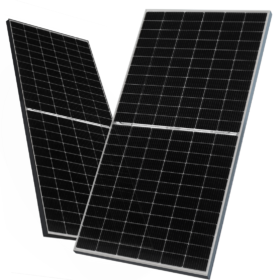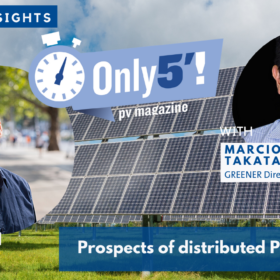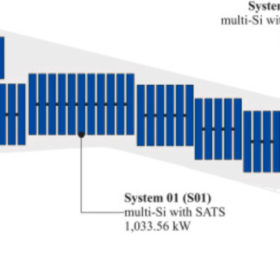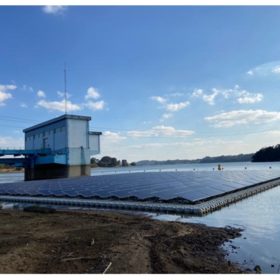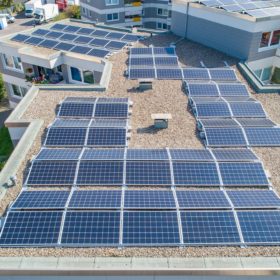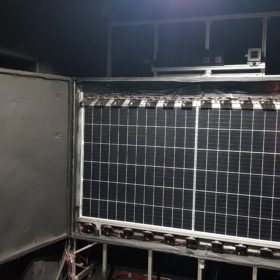Cenários para expansão da geração centralizada
Neste webinar da pv magazine Brasil, vamos discutir os diferentes cenários para a expansão da geração centralizada no Brasil com uma visão realista sobre a viabilidade desses projetos. Vamos analisar os números de possíveis instalações, comparar preços de PPAs, leilões e mercado livre, e discutir opções de hibridização.
Brazil imported 17.8 GW of solar modules in 2022
Brazilian demand for distributed-generation PV grew by 73% year on year in 2022, according to a new report by Greener. JinkoSolar was the largest module supplier in Brazil, with shipments reaching 3,065 MW.
Only5mins! – Prospects for distributed PV in Brazil
Marcio Takata, the CEO of Brazilian consultancy Greener, speaks to pv magazine about new provisions for distributed solar that went into force in Brazil at the start of this year. He says the new rules will slightly affect payback times, while ensuring strong growth volumes.
Brazil hits 25 GW solar milestone
ABSolar, the Brazilian solar association, says that the PV sector has attracted BRL 125 billion ($24.2 billion) in new investments since 2012 and has generated more than 750,200 jobs.
New study shows lower environmental impact with single-axis trackers
Brazilian researchers have compared the environmental impact of two PV plants – one with polycrystalline solar modules mounted on fixed-tilt trackers, and another with the same modules mounted on single-axis trackers. The life cycle assessment shows the system with single-axis trackers reduced carbon gas emissions by 24%, land use by 20%, and water use by 7%.
Floating PV reduces water evaporation in Brazilian reservoir by 60%
Brazilian and US researchers have evaluated the water evaporation rate of a floating PV system on a Brazilian reservoir. They said that the 130 kW installation reduced evaporation by 60%, and claimed that a 5 MW system could save enough water for 196 people per year.
Brazil has 17 GW of distributed solar, with 32 GW under development
The Brazilian Association of Photovoltaic Solar Energy (ABSolar) says the country has reached 17 GW of installed solar capacity for PV projects below 5 MW in size. Over the past three months, connection requests for distributed-generation PV projects have hit 32 GW.
Only5mins! – Brazil set for ‘best year of solar’ in 2023, says ABSolar
Rodrigo Lopes Sauaia, the CEO of the Brazilian Association of Photovoltaic Solar Energy (ABSolar), speaks to pv magazine about why Brazil is poised to install a record-breaking 10.1 GW of new capacity in 2023. He says both distributed-generation and utility-scale PV projects will contribute to “the best year of solar so far.”
Weekend Read: Can Lula deliver on Brazil’s solar hopes?
Brazil’s newly elected government, under Luiz Inácio “Lula” da Silva, will face energy-transition and decentralization issues during critically important years in the fight to curb climate change. Livia Neves reports from Rio de Janeiro.
Novel method to calculate variations in temperature coefficients of solar modules
Brazilian scientists have assessed variations in temperature coefficients in solar modules to determine whether there is a relationship between the dependence of these coefficients and irradiance. They claim their work could be used to improve PV module performance modeling.
